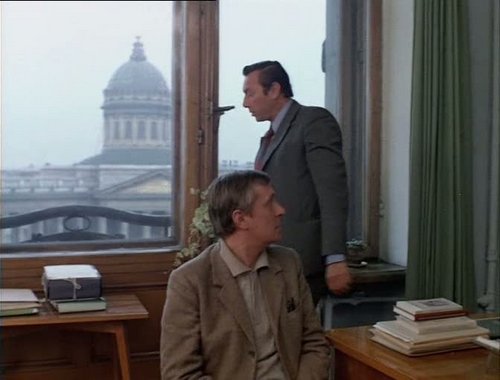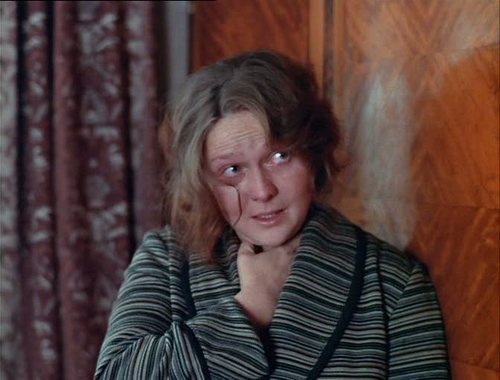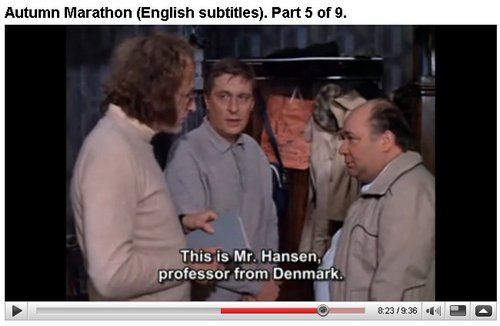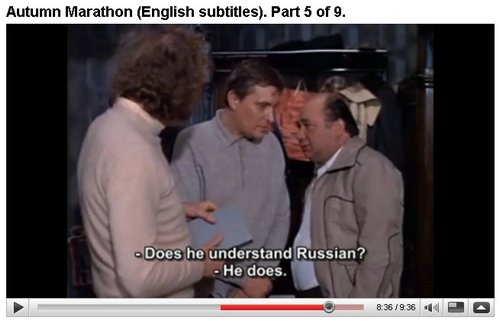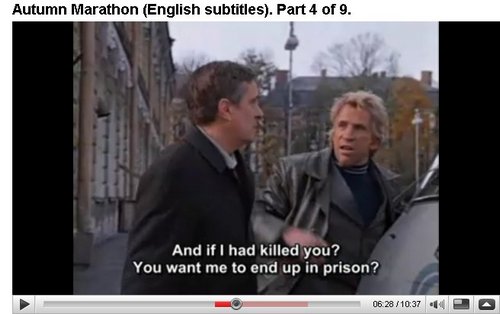Judging by the films Afonya (1975) and Autumn Marathon (1979), Georgi Daneliya had not yet broken free of the constraints of socialist realism in 1975.  He was still working within that box, mostly, but on the other hand the box was not boxing him in.  The values of collective society are explicitly stressed over those the individual, but the story is about an individual, Borshev, and is at least as much about his self-destructive behavior as his society-destructive behavior.
In fact, the scenes in which he is put in front of the collective for some labor discipline elicit more sympathy for Borshev, the individual, than for the collective. And this is even though we’ve seen what kind of slacker and self-server he can be.  Most of the workers are portrayed as being bored or tired of these proceedings, and are inclined to make a joke of them.  The box is a pretty battered container by the time Daneliya is done with it.
There are only the faintest echoes of the theme of collective over the individual in Autumn Marathon. There is no labor discipline, but there is a scene (pictured here) that demonstrates how intellectuals were kept under control.   (Some might say the method in this scene is not all that different from the way conformity is maintained within the American university system, or even that it’s a more subtle technique than we have.)  But this scene just demonstrates another way in which the main character, Buzykin, is helpless to change his life.   He can not bring himself to do anything to resolve the conflicting demands of his wife and girlfriend, and cannot do anything to make himself stand up for right treatment of his colleagues, or even avoid complicity in ill-treatment.
In Afony the individual does manage to reform himself, or get reformed by others, although there is some ambiguity on that point.  In Autumn Marathon, nothing changes in the end. There are attempts, but to no avail.  But in Marathon, reform for an individual would not have much to do with conformity to society.  If you’d want to make the point that Buzykin should get his life in order for the good of society, you’d have to make up that part of the story for yourself.  The movie isn’t going to do it for you.
I suppose all of this is debatable.  As usual, I probably miss a lot of subtleties and cultural allusions, given that it’s not my country and not my language.  I also wish I could find an overview on what was happening to the whole concept of socialist realism in Russia the 1970s.   Unfortunately, all of the English-language materials on the subject that I’ve found so far seem to deal with it only through the 1960s, if even that.    So I’m still looking for reading material on the Decline and Fall of socialist realism in Russia.


